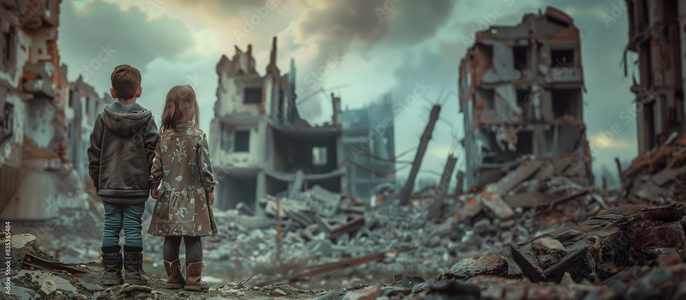Economic collapse unfolds as a process rather than a singular event. Historical patterns demonstrate that populations typically fail to recognize deteriorating conditions until crisis becomes undeniable. This failure stems not from lack of information but from predictable psychological responses that prevent effective preparation.
The 1929 stock market crash provides instructive precedent. Multiple warning signs preceded the collapse, including unsustainable speculation, excessive leverage, and asset valuations disconnected from underlying economic fundamentals. Financial professionals and government officials dismissed these indicators, maintaining optimistic projections until markets crashed. Following the initial decline, establishment economists assured the public that recovery would arrive quickly. These reassurances proved catastrophically wrong as the economy entered the Great Depression.
This pattern repeats across economic crises. Authorities and experts consistently downplay emerging problems, whether through genuine miscalculation or deliberate deception. The 2008 financial crisis followed similar dynamics. Federal Reserve officials and Treasury Department leadership insisted that subprime mortgage problems remained contained even as systemic risks became apparent to independent analysts. When crisis arrived, the same authorities who denied its possibility claimed no one could have predicted the outcome.
Contemporary economic conditions mirror historical precedents in concerning ways. Central banks raise interest rates during periods of economic weakness, replicating policy errors from previous crises. Inflation persists while economic growth stagnates, creating stagflationary conditions similar to the 1970s. During that decade, economic deterioration occurred gradually enough that populations adapted to declining living standards rather than demanding systemic change.
Psychological mechanisms explain this adaptive response. Humans demonstrate remarkable capacity to normalize deteriorating conditions when change occurs incrementally. What would seem intolerable if imposed suddenly becomes acceptable when introduced gradually over months or years. This normalization bias prevents recognition of long-term trends even as individual data points clearly indicate decline.
The concept of the "new normal" illustrates this dynamic. When economic conditions worsen, populations initially resist accepting reduced circumstances. Over time, however, these conditions become baseline expectations. Younger generations who experience only deteriorated conditions lack reference points for comparison, making them particularly susceptible to accepting diminished prospects as inevitable rather than correctable.
Social dynamics reinforce individual denial. Those who warn of impending collapse face social costs. Colleagues, friends, and family members often respond to warnings with dismissal or hostility. Being labeled an alarmist carries reputational damage that discourages public expression of concern. This social pressure creates information cascades where individuals suppress private doubts to conform to public optimism.
The progression through denial stages follows predictable patterns. Initially, individuals believe economic problems affect others but not themselves. Personal financial stability creates false confidence that broader systemic issues will not impact individual circumstances. This stage persists until personal consequences become unavoidable.
When problems become personally relevant, the response shifts to minimization. Previous warnings of collapse are reframed as exaggeration. The argument becomes that while some difficulties exist, predictions of serious crisis were overblown. This stage allows acknowledgment of problems while avoiding the implications of that acknowledgment.
As conditions continue deteriorating, the minimization strategy becomes untenable. At this point, the response shifts to claims that the crisis will prove temporary. Markets will recover, government intervention will stabilize the situation, or natural economic cycles will restore prosperity. This stage can persist for extended periods as individuals cling to hope that normal conditions will return without requiring personal adaptation.
When the temporary crisis narrative fails, responsibility attribution begins. The claim emerges that no one could have predicted the crisis. This assertion serves multiple psychological functions. It absolves individuals of responsibility for failing to prepare. It maintains faith in expert authority by suggesting that if experts could not predict the crisis, ordinary individuals cannot be blamed for similar failure. It preserves existing worldviews by framing the crisis as unprecedented rather than as a predictable consequence of observable trends.
The final stage involves retroactive claims of prescience. Individuals assert they always knew crisis was coming, rewriting personal history to maintain self-image as informed and prepared. This stage typically occurs after crisis becomes socially acceptable to acknowledge, allowing individuals to claim foresight without having faced social costs of early warning.
These denial stages create practical consequences. Each stage delays preparation, reducing options available when crisis becomes undeniable. Financial preparation requires time to build savings, acquire useful skills, establish alternative income sources, and relocate if necessary. Psychological preparation requires accepting uncomfortable realities and making difficult decisions. Delay in either domain increases vulnerability when crisis arrives.
The pattern also creates opportunities for those who recognize it. Understanding that populations will deny deteriorating conditions until denial becomes impossible allows for strategic positioning. Assets can be acquired at depressed prices from those forced to sell during crisis. Skills and relationships can be developed before competition for these resources intensifies. Physical relocation can occur before migration pressures make movement difficult.
Breaking free from denial cycles requires conscious effort. Individuals must actively seek information from sources outside mainstream consensus, evaluate that information critically, and act on conclusions even when doing so carries social costs. This process proves psychologically demanding, explaining why relatively few individuals successfully navigate it.
The current economic environment presents clear warning signs for those willing to examine them. Debt levels across government, corporate, and household sectors exceed historical precedents. Monetary policy operates in uncharted territory with consequences that remain uncertain. Geopolitical tensions threaten global trade relationships that underpin current prosperity. Demographic trends in developed economies create structural challenges for existing economic arrangements.
Whether these factors produce crisis depends on variables beyond individual control. What remains within individual control is the decision to prepare or to follow the predictable denial cycle. History demonstrates that populations typically choose denial until circumstances force acceptance. Understanding this pattern provides opportunity to make different choices.

